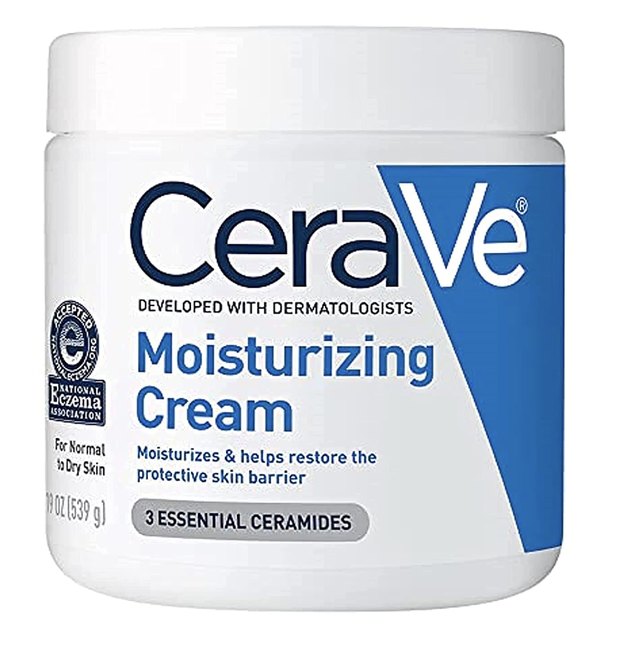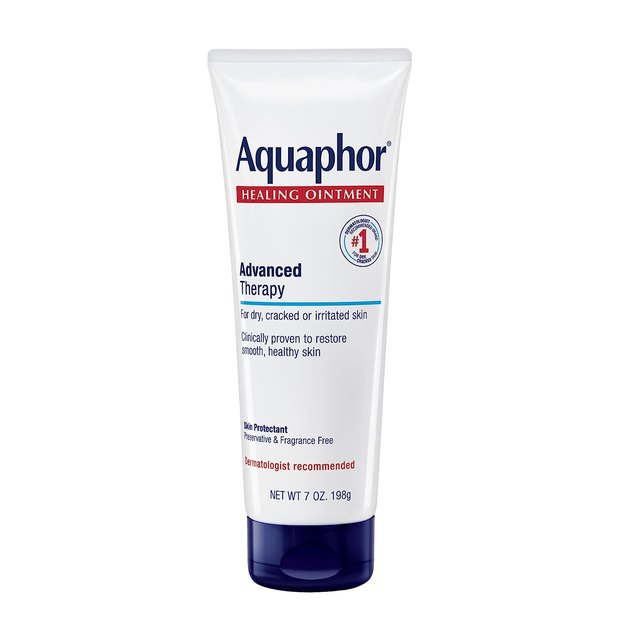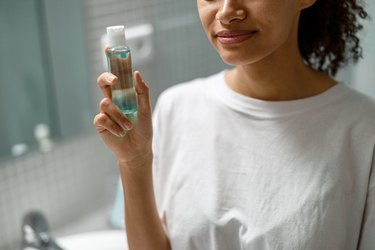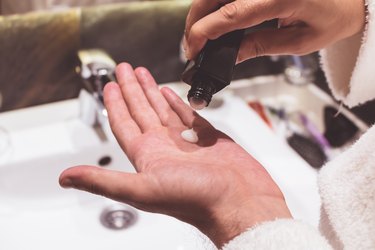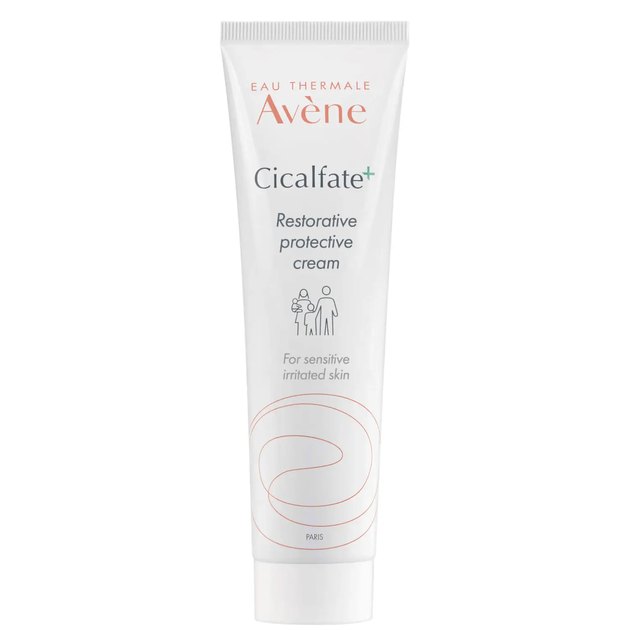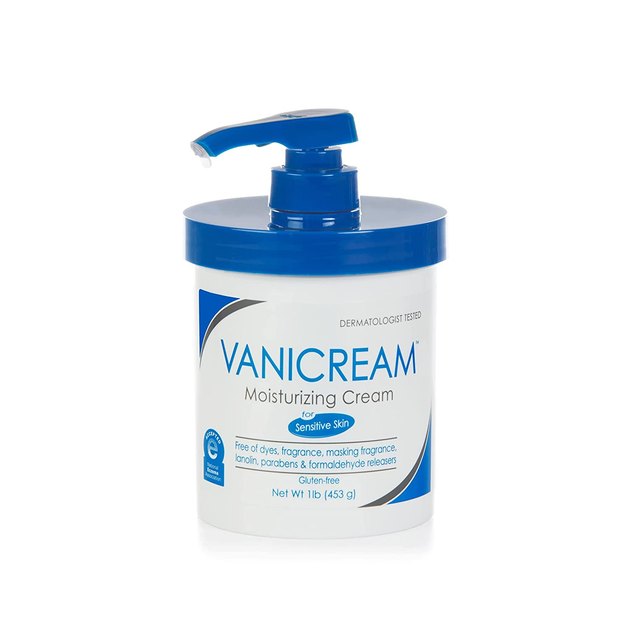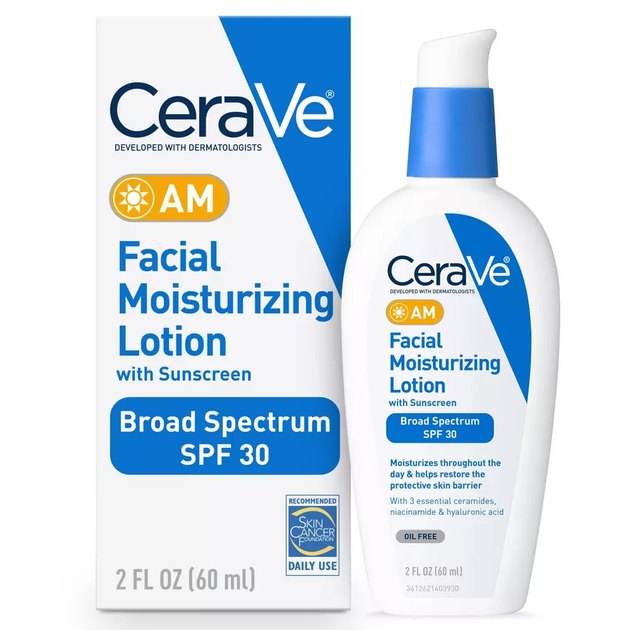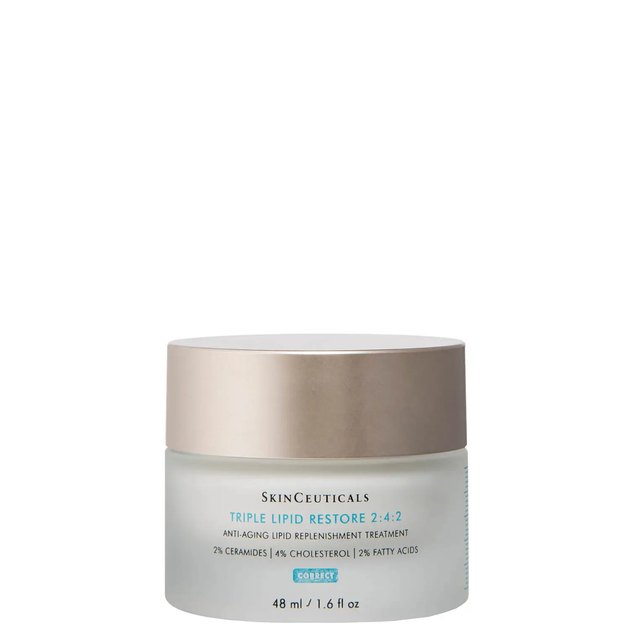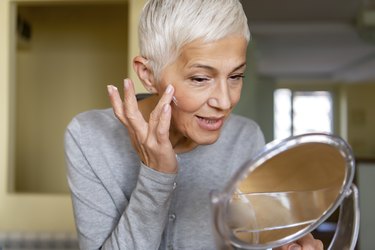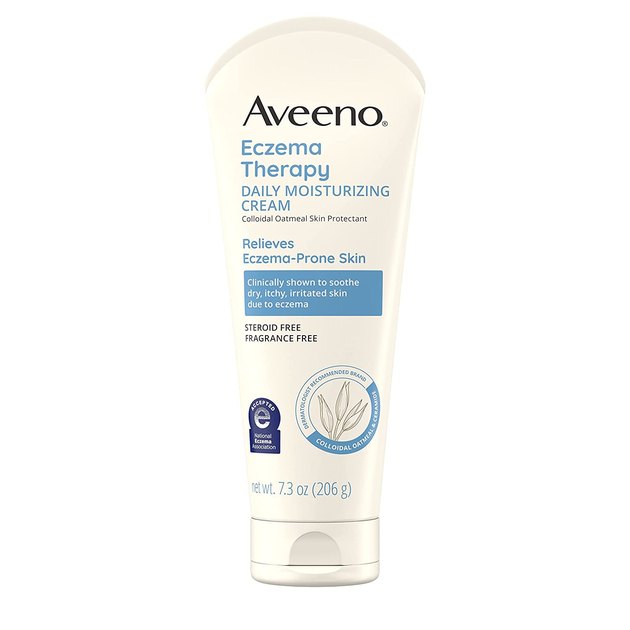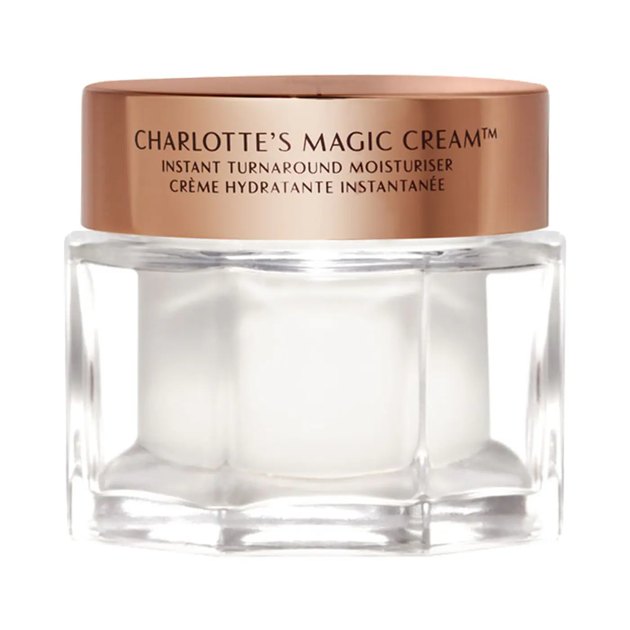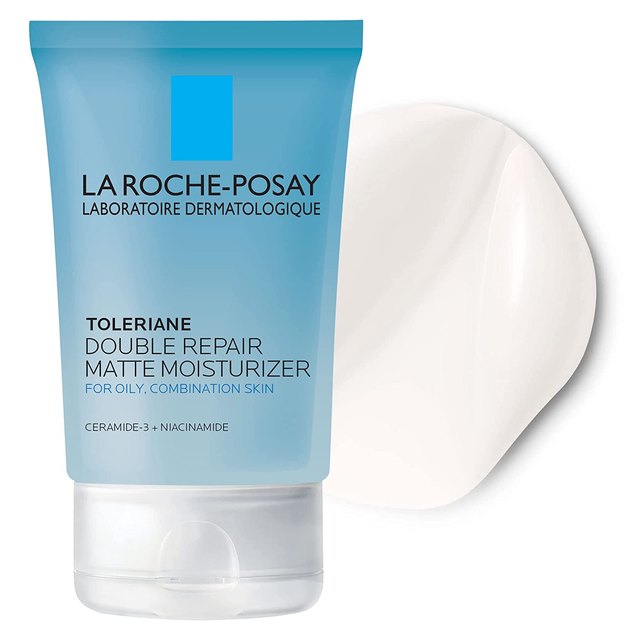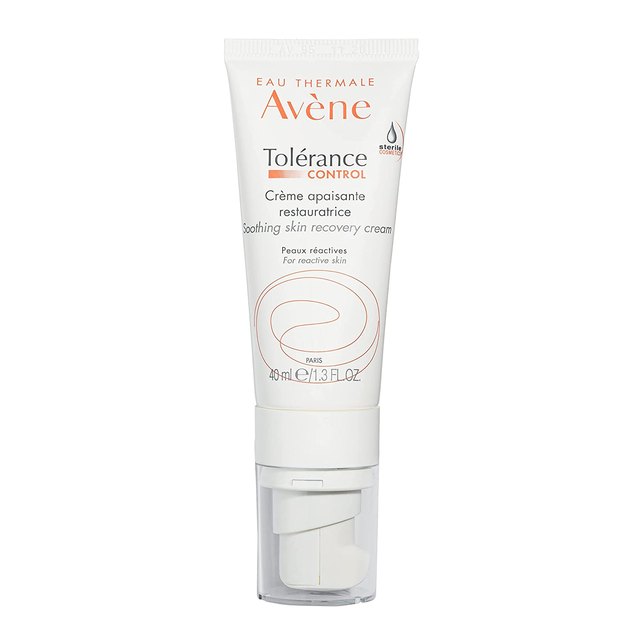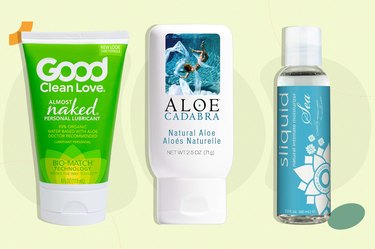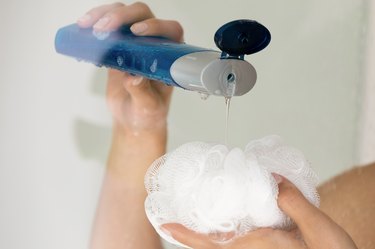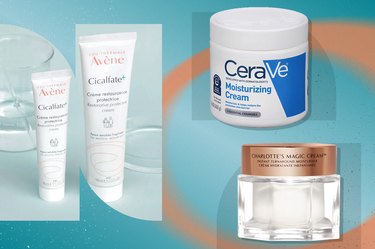
Dry skin and sensitive skin aren't the same thing, but they often occur together.
"Dry, sensitive skin is a skin type that lacks moisture and is easily irritated by external factors such as environmental irritants, harsh skin-care products and changes in temperature," Anthony Nikko, MD, a board-certified dermatologist in Houston, Texas, tells LIVESTRONG.com. "This type of skin can feel tight and rough and may show signs of flakiness, redness and itching."
Video of the Day
Video of the Day
Dealing with dryness and sensitivity at the same time can also make it more difficult to find the right skin-care products. On one hand, you should look for hydrating ingredients and emollients that lock them in to soften dryness. On the other hand, your skin might be sensitive to certain ingredients, which can narrow down your options.
With that in mind, here are the best moisturizers for dry, sensitive skin, as recommended by dermatologists.
The Best Face Moisturizers for Dry, Sensitive Skin
- Best Overall: CeraVe Moisturizing Cream ($17.78, Amazon)
- Best on a Budget: Aquaphor Healing Ointment ($12.49, Amazon)
- Best for Skin Barrier Support: Avène Cicalfate+ Restorative Protective Cream ($42, Dermstore)
- Best for Very Sensitive Skin: Vanicream Moisturizing Cream ($13.56, Amazon)
- Best With SPF: CeraVe Face Moisturizer With Sunscreen ($11.98, Amazon)
- Best Luxury Buy: SkinCeuticals Triple Lipid Restore 2:4:2 ($150, Dermstore)
- Best for Eczema: Aveeno Eczema Therapy Daily Moisturizing Cream ($12.78, Amazon)
- Best for Under Makeup: Charlotte Tilbury Magic Cream Moisturizer With Hyaluronic Acid ($65, Sephora)
- Best for Combination Skin: La Roche-Posay Toleriane Double Repair Moisturizer ($21.99, Amazon)
- Best for Soothing Redness: Avene Tolerance Control Soothing Skin Recovery Cream ($28.80, Amazon)
How We Chose
We interviewed board-certified dermatologists, who broke down the most important criteria for choosing face moisturizers for dry, sensitive skin. Our picks are based on their recommendations as well as the following criteria:
- Contain beneficial humectants (which draw in moisture), occlusives (that trap moisture) and skin-strengthening ingredients
- Do not contain irritants such as alcohol or fragrance
- Availability
- Positive reviews
- Cost
Learn more about how we cover products here.
1. CeraVe Moisturizing Cream
Pros
- Contains ceramides and hyaluronic acid
- Affordable and accessible
- Suitable for eczema
Cons
- Some reviewers had issues with the pump
Because it came recommended by nearly every dermatologist we spoke to, our top choice was easy.
CeraVe Moisturizing Cream checks a lot of boxes for both dryness and sensitivity. It has a simple, gentle ingredient list safe for even the most sensitive skin, and it's powered by active ingredients that effectively trap moisture and support skin health.
"This moisturizer contains ceramides, hyaluronic acid and glycerin, which work together to deeply hydrate and restore the skin's natural barrier," Dr. Nikko says. "It's non-comedogenic, fragrance-free and suitable for all skin types, making it a great choice for those with dry, sensitive skin."
2. Aquaphor Healing Ointment
Pros
- Contains petrolatum to trap moisture
- Soothes chapped, cracked skin
- Can protect cuts
Cons
- May feel greasy
- Contains lanolin alcohol, which can be irritating for some people
- May not be the best option for people with acne because it's so thick
One of the best moisturizers for dry, sensitive skin is actually an ointment, Asmi Sanghvi, MD, a board-certified dermatologist in New York City, tells us.
Because an ointment is much thicker, it's better at reducing moisture loss, which contributes to dryness and weakened skin barrier function.
"Aquaphor Healing Ointment is a breathable occlusive ointment," says Beth Goldstein, MD, a board-certified dermatologist with a private practice in North Carolina. "While it's not so elegant to use, it can help trap moisture in dry skin and heal inflamed, cracked skin."
It's super thick, which contributes to its effectiveness, but can feel heavy on the skin. This makes it a better nighttime moisturizer than a daytime one for that reason.
3. Avène Cicalfate+ Restorative Protective Cream
Pros
- Formulated for sensitive, damaged skin
- Can reduce the appearance of scarring
Cons
- Pricey
- Has a thin consistency, per some reviews
When asked for the best moisturizer for skin barrier function, Dr. Goldstein recommends this one. It's best for an inflamed skin barrier, she says, which can be a symptom of a skin condition such as eczema or rosacea.
This cream contains glycerin to hydrate, beneficial bacteria to reduce inflammation and mineral oil to prevent moisture loss.
4. Vanicream Moisturizing Cream
Pros
- Free of irritants
- Easy-to-use pump
- Hydrates skin and traps moisture
Cons
- Thick consistency; needs to be rubbed in
Aside from CeraVe, Vanicream was the second most popular moisturizer among the dermatologists we interviewed.
If you have very sensitive skin, this is the one for you, as it's specifically designed for those with severe allergies and sensitivities, Dr. Goldstein says.
Jill Salyards, MD, a board-certified dermatologist in Knoxville, Tennessee, likes that it's free of dyes, fragrances, parabens and formaldehyde releasers yet contains occlusive ingredients like petrolatum and dimethicone to intensely moisturize dry skin.
5. CeraVe Facial Moisturizing Lotion With Sunscreen
Pros
- Moisturizes and protects skin from sun exposure
- Recommended by the Skin Cancer Foundation
- Doesn’t leave a white cast
Cons
- May not be thick enough for very dry skin
- Not ideal for nighttime use
There's a reason dermatologists love CeraVe skin-care products, and Dr. Goldstein says it all comes down to ceramides. "Ceramides are the key ingredient," she explains. "CeraVe is the leader in ceramides, and their products are the first I often recommend because they repair and replenish the skin."
This daytime moisturizer not only packs a hydrating punch, it also protects against UV damage with SPF 30, which is the level of sun protection recommended by the American Academy of Dermatology.
Some people with dry skin feel that using sunscreen products exacerbates their dryness, but the opposite is true. Sunburns can weaken the skin barrier and increase water loss, so using sunscreen prevents dryness, per the Mayo Clinic.
(Psst: Check out our complete list of the best sunscreens for sensitive skin.)
6. SkinCeuticals Triple Lipid Restore 2:4:2
Pros
- Contains lipids and anti-aging ingredients
- Fights free radicals with antioxidants
- Suitable for mature, dry skin
Cons
- Pricey
- Some may be sensitive to essential oils
Dr. Sanghvi recommends looking for a moisturizer that's labeled as a cream and contains glycerin to boost hydration levels. She recommends this pricey but effective facial cream from SkinCeuticals because it checks both boxes and then some.
"The SkinCeuticals Triple Lipid Restore replenishes the lost protective oils on the skin and is great for mature skin," she says.
It contains essential lipids like cholesterol, which are often overlooked in skin-care products. The skin naturally contains lipids, a type of fat, which fill the spaces in-between skin cells and support the skin barrier. Applying them topically has an anti-aging effect and also helps soften dry skin.
Lipid-based cosmetics are also helpful for soothing irritated and inflamed skin, including skin affected by psoriasis and atopic dermatitis (eczema), according to a May 2020 review in Biomedical Dermatology.
7. Aveeno Eczema Therapy Daily Moisturizing Cream
Pros
- Colloidal oatmeal soothes irritation and itching
- Accepted by the National Eczema Association
- Can be used on the body
Cons
- On the greasy side, according to some reviewers
If you have eczema, you're no stranger to dry and sensitive skin. Eczema is an inflammatory skin condition that causes dry, irritated skin, per the National Library of Medicine. It's often accompanied by swelling.
Because certain cosmetic ingredients can trigger symptoms, it can be difficult to find the right products to get eczema relief. But the best eczema creams have gentle ingredients that moisturize, soothe and protect the skin.
Dr. Salyards recommends this Aveeno moisturizer for those struggling with dry, sensitive and eczema-prone skin. Its hero ingredient is colloidal oatmeal, which acts as a skin protectant and relieves irritation, she says.
She also approves of its use of glycerin, petrolatum, dimethicone and ceramides, which all work together to moisturize skin and support skin barrier function.
8. Charlotte Tilbury Magic Cream Moisturizer With Hyaluronic Acid
Pros
- Peptides have anti-aging benefits
- Hyaluronic acid hydrates dry skin
- Vitamins fend free radicals
Cons
- Pricey
- Small amount
This moisturizer comes in a beautiful jar, but the real magic is in the ingredients.
"This moisturizer is specially formulated for dry, intolerant skin as it contains a soothing blend of ingredients like hyaluronic acid, peptides and vitamins, which together will moisturize, plump and tighten the skin," explains Jeannette Graf, MD, board-certified dermatologist and an assistant clinical professor of dermatology at Mount Sinai School of Medicine in New York City.
While it's suitable for dry skin, this moisturizer may be best for those looking for anti-aging active ingredients. It's an anti-aging formula, but it also supports the skin's natural barrier, Dr. Graf says.
9. La Roche-Posay Toleriane Double Repair Matte Moisturizer
Pros
- Simple, gentle ingredient list
- Free of common irritants
- Contains hyaluronic acid, ceramides and glycerin
Cons
- Some may find niacinamide too harsh
This La Roche-Posay moisturizer was another popular pick among the dermatologists we spoke to. Many praised the formula for its special blend of active ingredients that benefit both dry and sensitive skin.
Dr. Nikko calls out ceramides, niacinamide and glycerin for their soothing and hydrating properties but also appreciates that this moisturizer is free of irritants like fragrance and harsh preservatives.
Ultimately, he says it's a gentle choice for sensitive skin but is still thick enough to banish dryness.
10. Avène Tolerance Control Soothing Skin Recovery Cream
Pros
- Thermal spring water soothes irritation
- Free of allergens and irritants
- Rich texture
Cons
- Not available at many retailers
Water is usually the first ingredient in any moisturizer, but Avène doesn't use any old water. The brand is known for using thermal spring water, which is believed to soothe sensitive and eczema-prone skin.
There's actual research to back up these claims. Thermal spring water in skin-care products can alleviate redness and sensitivity, according to August 2020 research in the Journal of the European Academy of Dermatology and Venereology.
Dr. Goldstein gives her approval of Avène's line of thermal spring water products, particularly for eczema and other inflammatory skin disorders. This cream in particular is suitable for those prone to allergic reactions and redness.
What to Look for in a Face Moisturizer for Dry, Sensitive Skin
We spoke with several dermatologists who advised us on how to choose the best face moisturizers for dry and sensitive skin types. Here's the criteria they provided so you can conduct similar research.
1. Beneficial Ingredients
There are three main types of ingredients used in moisturizers — humectants, occlusives and emollients. All are beneficial, but for dry, sensitive skin, our dermatologists recommended focusing on humectants and occlusives.
"Key occlusive ingredients that prevent transepidermal water loss include petrolatum, squalane, dimethicone, lanolin, cholesterol and ceramides," explains Dr. Salyards. "Ingredients that work as humectants to rehydrate the skin include glycerin, urea, hyaluronic acid, propylene glycol, sorbitol and sodium lactate."
Occlusives that trap moisture include petrolatum and dimethicone.
The American Academy of Dermatology also recommends the following ingredients for relieving dry skin: shea butter, jojoba oil, lactic acid and mineral oil.
Ceramides and lipids can also help strengthen skin.
2. Free of Irritating Ingredients
Those with dry skin may want to avoid ingredients that can make their skin feel tight, such as salicylic acid, but it's the sensitive side that has more restrictions. Generally, people with sensitive skin should pay close attention to their personal triggers, which can include harsh chemicals and even natural ingredients like essential oils.
Dr. Nikko recommends avoiding moisturizers that contain alcohol, fragrance, parabens and sulfates if you have sensitive skin. While others may tolerate these ingredients just fine, they may be too harsh for those with sensitive skin.
Those with eczema may also consider avoiding urea, retinoids and lanolin, per the National Eczema Association.
3. Consistency
Terms like cream, moisturizer and lotion are often used interchangeably, but these describe different types of products with varying consistencies. For dry skin, a thicker cream is better than a lightweight moisturizer.
"The best type of moisturizer for this skin type will be a heavier consistency that will be formulated to provide intense hydration and have gentle ingredients," says Dr. Graf, adding that emollient and occlusive ingredients will do the trick.
Lotions may not be moisturizing enough, so Dr. Sanghvi says to look for creams and ointments to get maximum lubrication. Oils are also suitable options for dry skin, she adds.
- American Academy of Dermatology: "Sunscreen FAQs"
- Mayo Clinic: "The science of sunburns: Why they happen and how to treat them"
- Biomedical Dermatology: "Lipid-based formulations in cosmeceuticals and biopharmaceuticals"
- Journal of the European Academy of Dermatology and Venereology: “Protective properties of Avène Thermal Spring Water on biomechanical, ultrastructural and clinical parameters of human skin”
- National Library of Medicine: “Eczema”
- National Eczema Association: “8 skincare ingredients to avoid if you have eczema, according to dermatologists”
- American Academy of Dermatology: “Dermatologists’ top tips for relieving dry skin”
Is this an emergency? If you are experiencing serious medical symptoms, please see the National Library of Medicine’s list of signs you need emergency medical attention or call 911.
